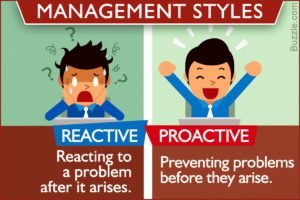Introduction
A financial planner and a wealth manager both come under financial advisory jobs. A financial planner helps in managing day to day finances of their clients whereas a wealth manager helps in preserving the current wealth and adopting sustainable development so that the financial resources may be preserved for the future.
There are a lot of differences in both these job roles and similarities too. It is up to one’s interests and capabilities that which one he/she chooses. Let us see both these careers in detail and compare them.
Job Roles
Financial planners are concerned with lifestyle planning. Their target audience is generally middle-class people or low-level companies. They help people in meeting the ends and give them advice on how to invest money in their lifestyle while saving too.
 Their job duties include saving money for college, budgeting, retirement planning, insurance planning, etc. Their clients are normal people who want to use their income in a planned way so that they could achieve their life goals or some short-term goals.
Their job duties include saving money for college, budgeting, retirement planning, insurance planning, etc. Their clients are normal people who want to use their income in a planned way so that they could achieve their life goals or some short-term goals.
A wealth manager on the other hand deals with HNI (High Networth Individuals) clients or Ultra HNI clients. A wealth manager helps rich businessmen/people to preserve their wealth and adopt a sustainable development process. A wealth manager analyses the market and advises his/her clients on investment opportunities. They are involved in chores like capital/revenue planning, estate planning, risk identification & management, etc. They help their clients in identifying the risks of investing in any new venture. They help in sustainably using financial resources & services.
Education & Skills Required
Wealth managers & financial planners tend to do a bachelor’s degree in economics, accounts, finance, or mathematics. However, the certification courses vary for them. A wealth manager generally does a CPA (Certified Public Accountant) course whereas a financial planner prefers a CFP (Certified Financial Planner).
 There are a plethora of Wealth Management Courses available on the internet. However, any professional in the wealth management or financial planning sector can do both of these certification courses as there is no necessity for any one of them for getting a job. These certification courses boost your skills.
There are a plethora of Wealth Management Courses available on the internet. However, any professional in the wealth management or financial planning sector can do both of these certification courses as there is no necessity for any one of them for getting a job. These certification courses boost your skills.
The skills needed are almost identical in both sectors. The major skills needed in the wealth management & financial planning sector are analytical skills, market analysis skills, communication skills, forecasting skills, networking skills, etc. As a wealth manager, you will need to have a large network of HNI or Ultra HNI clients in the market as compared to a financial planner.
What to choose?
If you have a natural market of HNI/Ultra HNI clients, then go for a Wealth Management Career otherwise you can opt for financial planning. Wealth management requires more networking skills than a financial planner. The salaries of wealth managers are also higher than those of financial planners.
The best criteria would be to aim for a wealth manager and if things don’t work out then go for financial planning because the skills & education required are almost identical in both fields. This was all about career advice related to wealth management & financial planning.




 They focus on the financial relationships of his/her client. They keep analysing the market and ping their clients whenever a good investment opportunity occurs. They also work in investment banks advising clients on whether to invest in any particular venture or not.
They focus on the financial relationships of his/her client. They keep analysing the market and ping their clients whenever a good investment opportunity occurs. They also work in investment banks advising clients on whether to invest in any particular venture or not.

 With many
With many  Many internship opportunities offer a chance to convert into full-time positions. You may also consider volunteering or working for a non-profit organisation. Check for online platforms and groups where you get to interact with like-minded people who work in a similar role or the same industry. Look for open projects and try to contribute. Grow your network and seek opportunities. Look for meetups in your city and try to be a part of it. If you are confident, venture out to entrepreneurship.
Many internship opportunities offer a chance to convert into full-time positions. You may also consider volunteering or working for a non-profit organisation. Check for online platforms and groups where you get to interact with like-minded people who work in a similar role or the same industry. Look for open projects and try to contribute. Grow your network and seek opportunities. Look for meetups in your city and try to be a part of it. If you are confident, venture out to entrepreneurship.
 Currently, job trends in the market are thriving in the field of banking. Hence, comprehensive Banking and Finance Courses can be extremely beneficial for women.
Currently, job trends in the market are thriving in the field of banking. Hence, comprehensive Banking and Finance Courses can be extremely beneficial for women. Hence, a great opportunity for any woman would be to take a course in Fintech online training. Going forward, this comprehensive
Hence, a great opportunity for any woman would be to take a course in Fintech online training. Going forward, this comprehensive  Imarticus provides a
Imarticus provides a  We have already seen the use of AI in computers and mobiles so why not study something which will be mainstream in the coming years? A comprehensive
We have already seen the use of AI in computers and mobiles so why not study something which will be mainstream in the coming years? A comprehensive  For a woman who is determined to take a step forward towards success, a
For a woman who is determined to take a step forward towards success, a 
 When business enterprises are doing well, they directly increase the GDP of an economy (profitably) leading to an increase in the country’s overall wealth.
When business enterprises are doing well, they directly increase the GDP of an economy (profitably) leading to an increase in the country’s overall wealth. The strengths and weaknesses analyse the internal environmental attributes of a business which are under the control of the organization, whereas, opportunities and threats examine the external environment of the business which the organizations cannot control.
The strengths and weaknesses analyse the internal environmental attributes of a business which are under the control of the organization, whereas, opportunities and threats examine the external environment of the business which the organizations cannot control. How could one get better results from its subordinates?
How could one get better results from its subordinates? A reactive decision making, on the other hand, is one where situations and risks are dealt with, as and when they occur. A reactive decision is taken for emergencies whereas a pro-active decision tries to deal with situational risks through predicting them in advance.
A reactive decision making, on the other hand, is one where situations and risks are dealt with, as and when they occur. A reactive decision is taken for emergencies whereas a pro-active decision tries to deal with situational risks through predicting them in advance. A
A 
 Imarticus Learning’s
Imarticus Learning’s 


 I came across Imarticus’
I came across Imarticus’